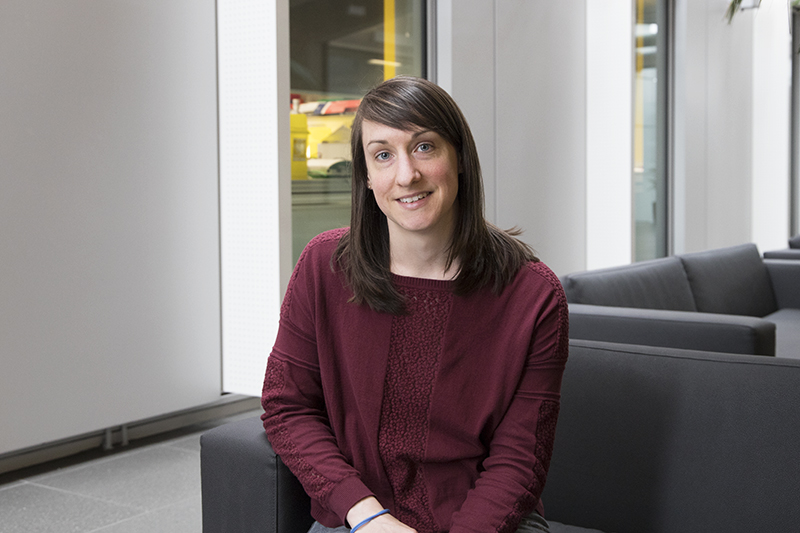
In the first edition of our Staff Profiles series, we spoke to Nicola Thompson, Divisional Operations Assistant for the Divisions of Brain Sciences and Experimental Medicine.
What does your role entail?
A variety of admin tasks to assist with the day-to-day operation of the Brain Sciences and Experimental Medicine Divisions. This might include processing Honorary associations, administering timesheets, processing finance forms or editing the Brain Sciences newsletter. I work closely with the Divisional Manager and Section Managers.
When did you first join the Department, and where were you working before?
I joined in August 2016. My previous role was as Graphic Design & Brand Exec at British Rowing, the governing body for the sport.
What are your biggest hobbies outside of work?
My background is in textile design, so I do design alongside my work at Imperial. Recent projects have included: designing prints for interior furnishing fabrics and constructing origami lampshades. I’m currently working on a series of floral lino prints. Outside of design I love travelling, cycling and watching films.
What do you find to be the most challenging part of your role?
My role leads me to be very involved in the minutiae of quite specific areas of responsibility, which means gaining an overview of how these areas fit into the bigger picture of the Division or Department – this can sometimes be tricky. When I first started in the role, getting to grips with the huge number of acronyms used at the College was certainly a challenge!
What do you find to be the most rewarding part of your role?
I enjoy the variety of my role. Alongside my day-to-day tasks, I have the opportunity to get involved in a number of additional projects. My favourite so far has been re-designing the Brain Sciences newsletter.
Your favourite thing about working in the Department of Medicine?
Hearing about the research activities that are going on across the Department, and the scientific breakthroughs that happen as a result. Although I am not directly involved in research, it is rewarding to be part of a department doing ground-breaking work to improve people’s lives.
If the Department could do one thing to improve its organisational culture, what do you think that should be?
Offering some form of work shadowing scheme, where staff of all levels could shadow colleagues in other Divisions and areas of work. This would better connect colleagues across the Department, allow them to gain an insight into how other teams operate, and provide the opportunity for staff to meet colleagues working in different fields.